
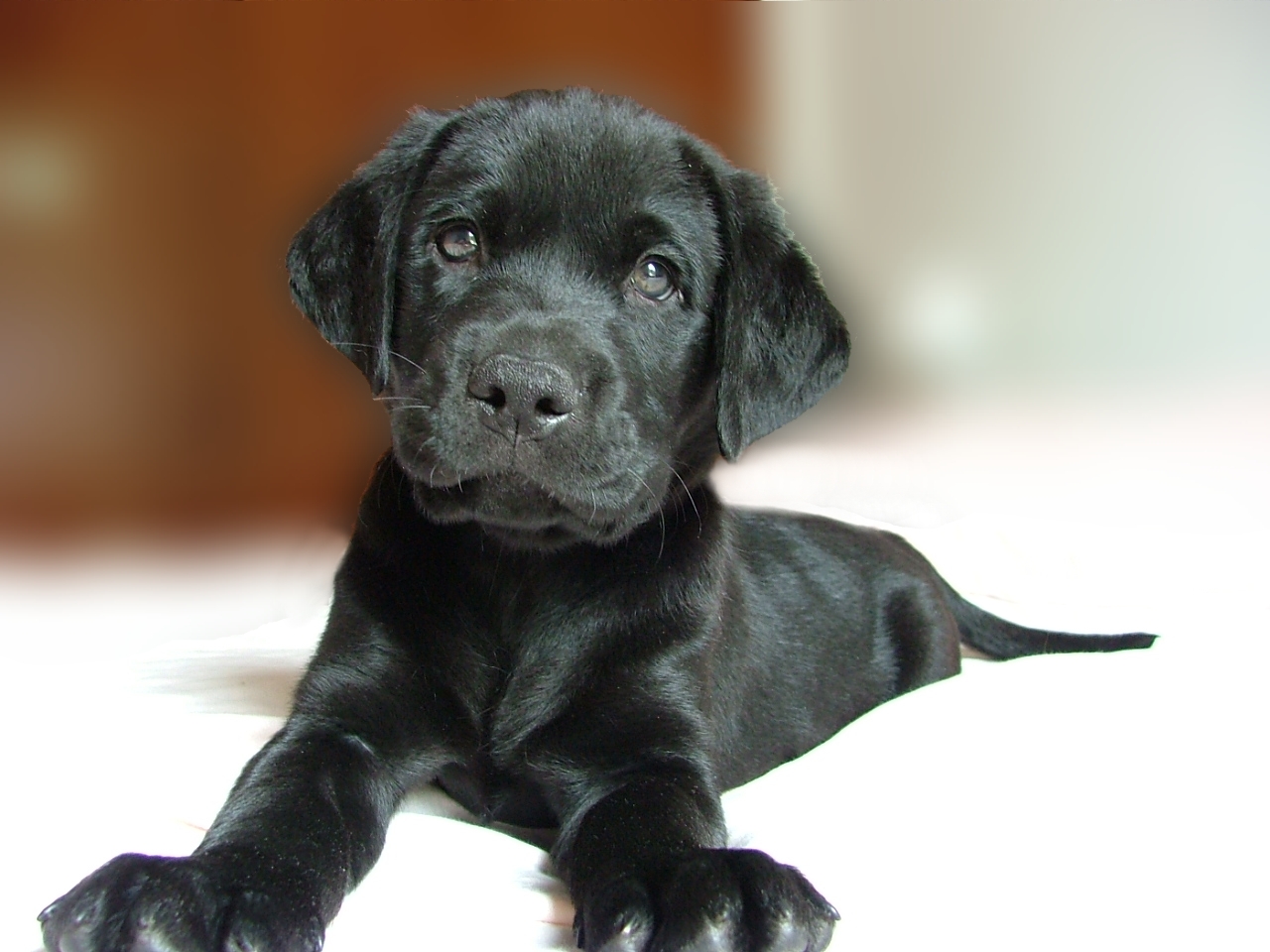
Appropriate puppy training is an investment for your dog’s life. You will learn about canine communication, prevention, common problem solving and modern, science-based training methods.
Home visits
Highly recommended service for future dog owners who are preparing themselves for the arrival of their new puppy. Appropriate training and management are the keys to raising a well-behaved and balanced dog.
Suitable for people who are unable to manage regular puppy classes or who feel that they need more guidance with particular problems.
Puppy home visits take place at your home where your dog will spend most of the time. One single service lasts 60 minutes and includes education on how dogs learn, advice on equipment, management and some practical training.
Suitable for people who are unable to manage regular puppy classes or who feel that they need more guidance with particular problems.
Puppy home visits take place at your home where your dog will spend most of the time. One single service lasts 60 minutes and includes education on how dogs learn, advice on equipment, management and some practical training.
Using up to date knowledge and methods we can help you with:
- Housetraining
- Puppy biting
- Crate training
- Walking on the lead
- Basic obedience training & manners
- Behavioural problems prevention
- Ideas for appropriate puppy stimulation
- Ideas for puppy socialisation
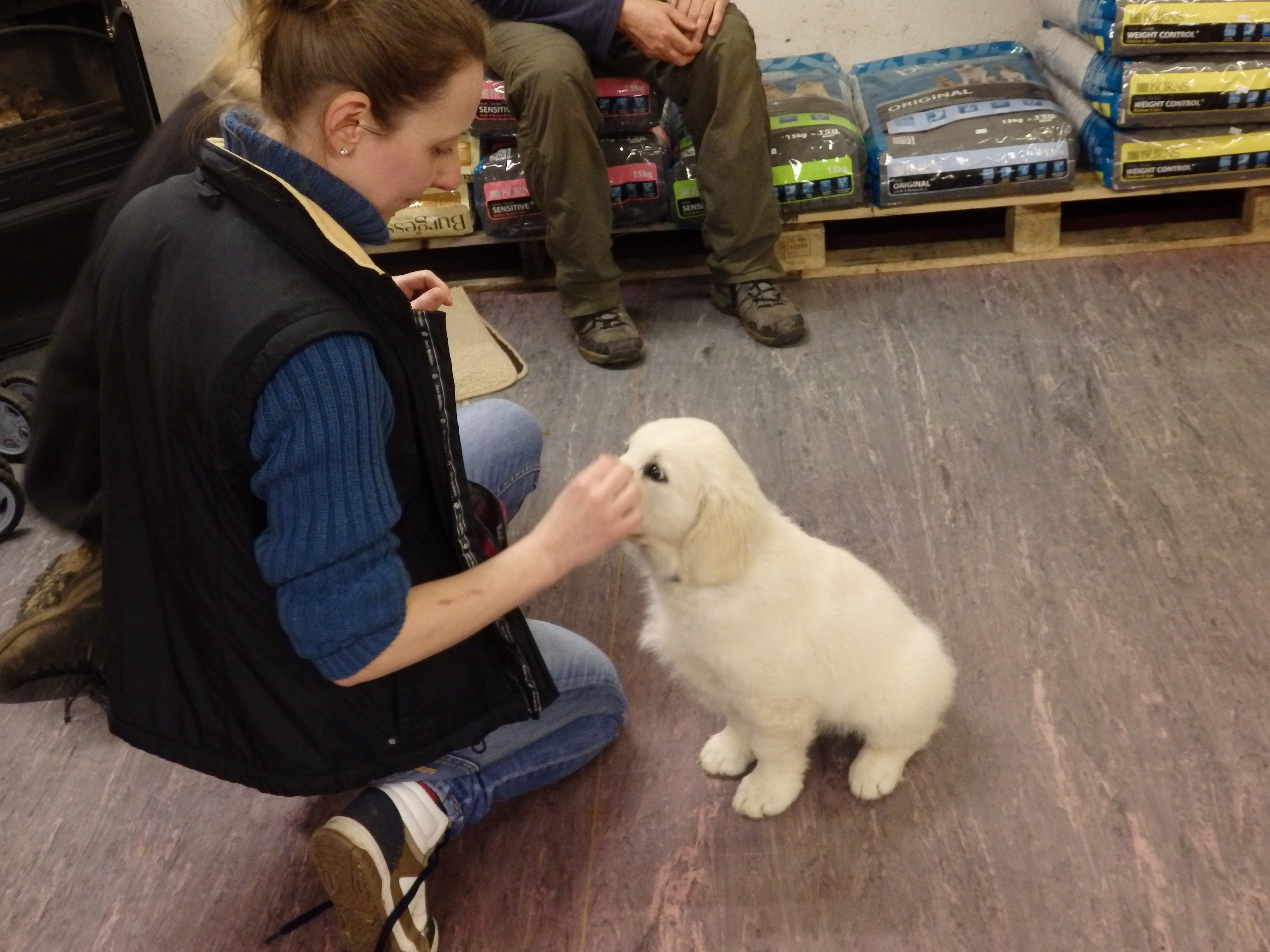
1 hour - £30 (+travel costs)
Packages available
3 hours - £75 (+travel costs)
5 hours - £100 (+travel costs)
Packages available
3 hours - £75 (+travel costs)
5 hours - £100 (+travel costs)
Puppy Classes
What it is?
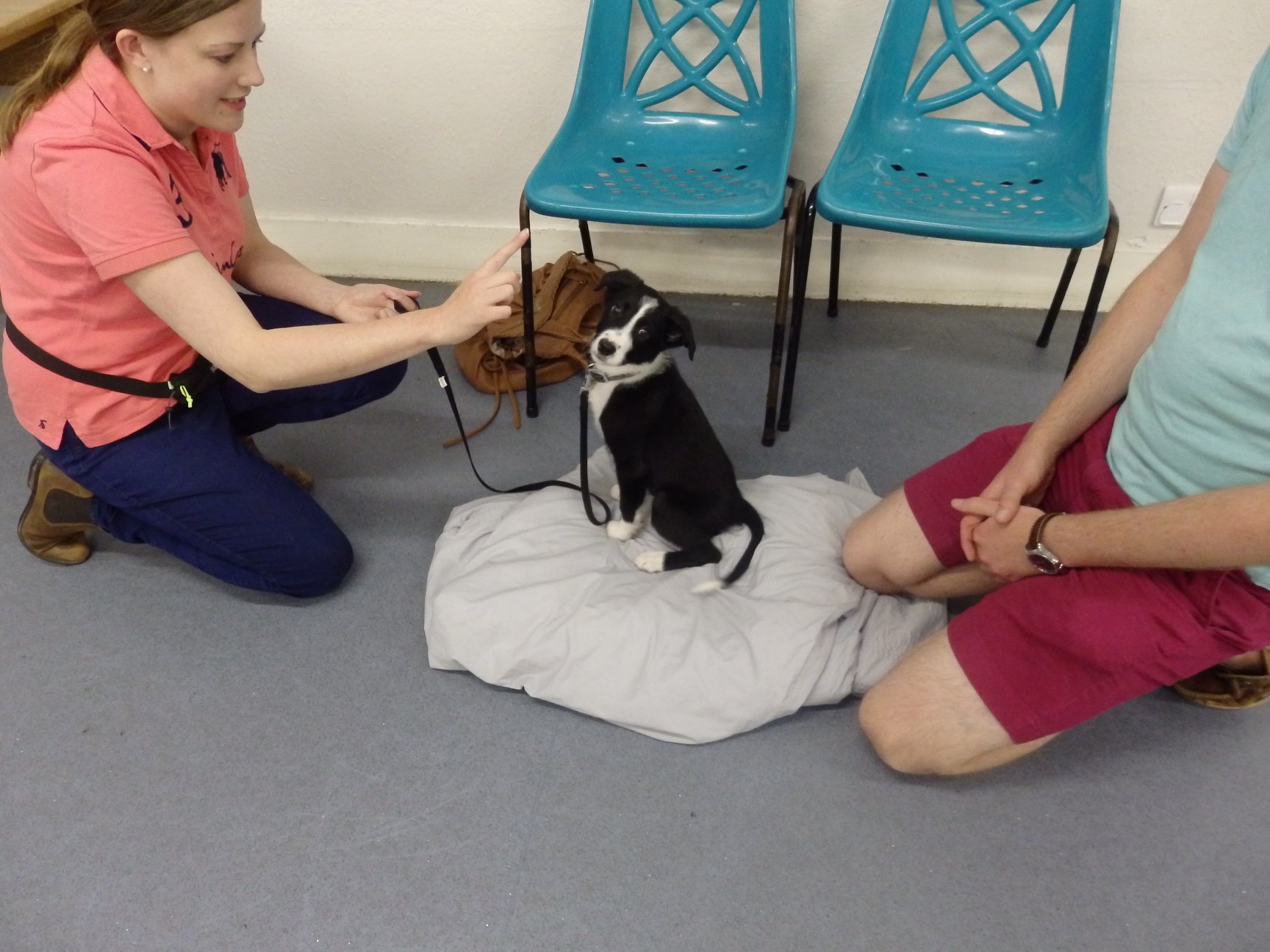
Indoor training and socialisation in a small group of up to 6 dogs. Designed for puppies between 8 and 16 weeks. Conducted by a qualified trainer in a friendly manner using up to date knowledge and methods. We work using methods based on positive reinforcement (rewards) and techniques such as luring, capturing and shaping. Each block lasts 8 weeks (approx. 55 minutes per session) and is preceded by an informative introduction for puppy owners.
What is included in the programme?
- Confidence building
- Handling/examining
- Introduction to walking on a loose leash
- Jumping up prevention
- Basic obedience (sit, down, stand, come, stay)
- Focusing on the owner on cue (look at me)
- Meeting & greeting politely
- Leave and drop on cue
- Teaching tricks
- Interactive games with owners
- Ideas to socialise puppies on a daily basis (socialisation lottery)
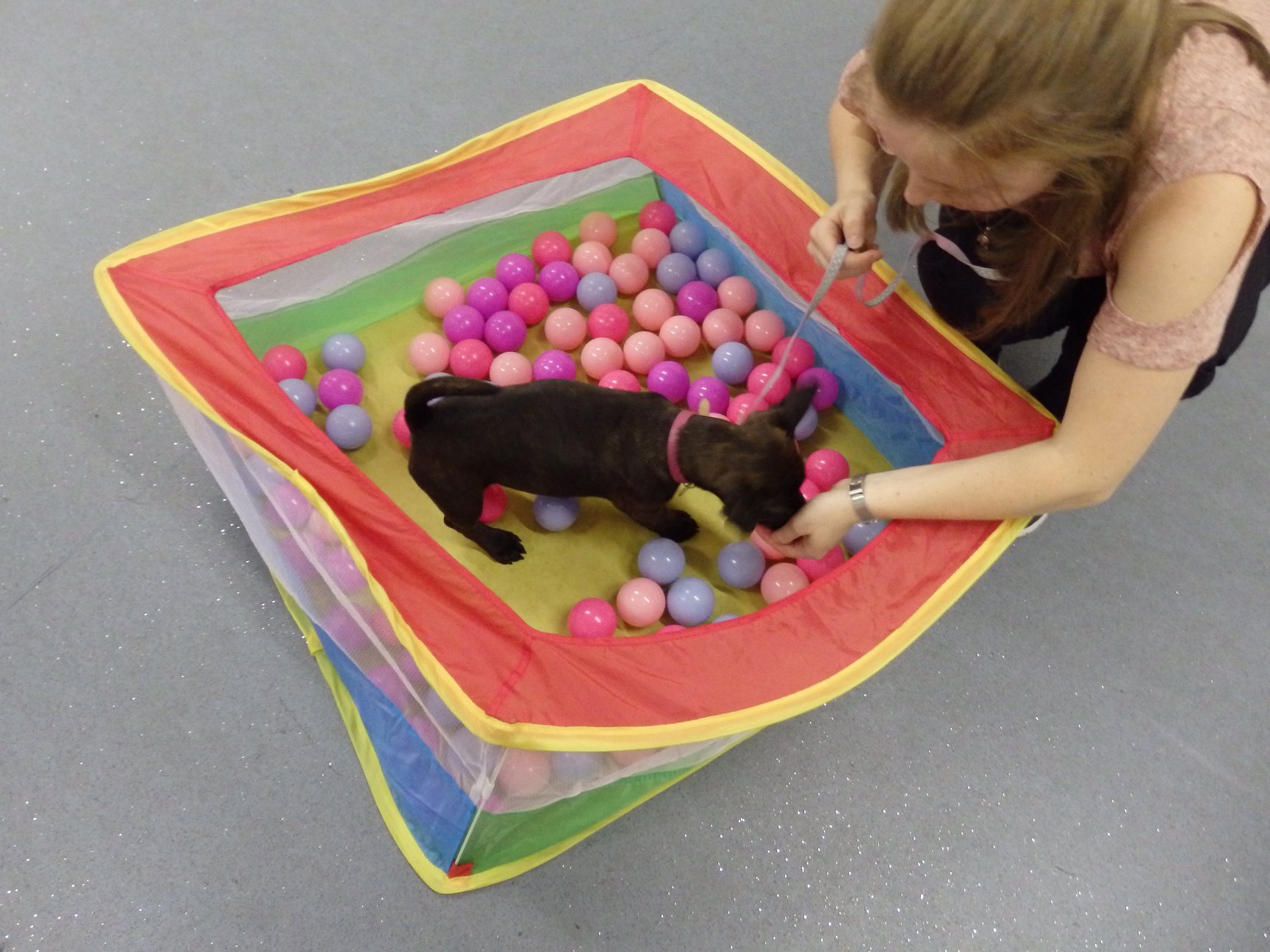
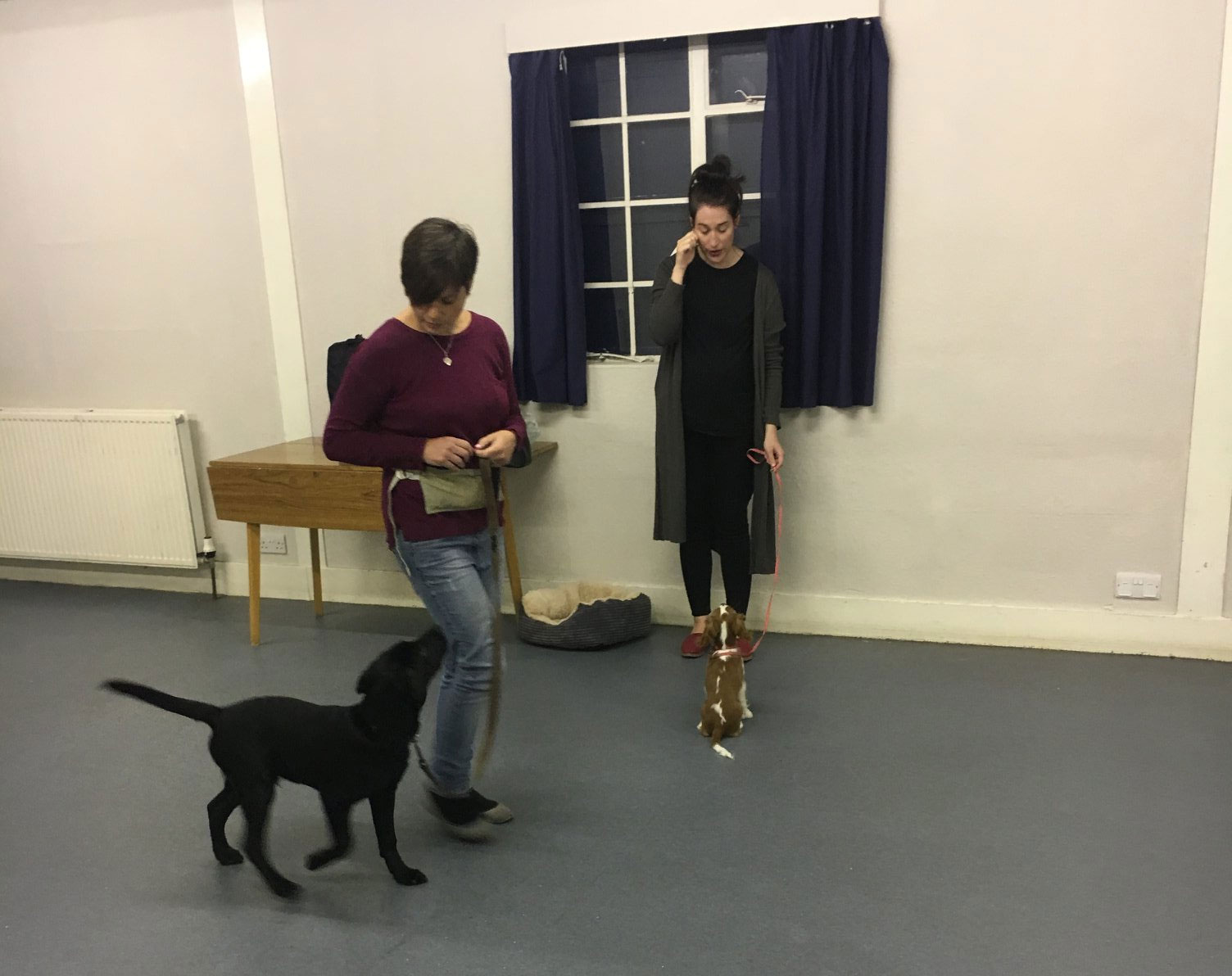
What it isn’t?
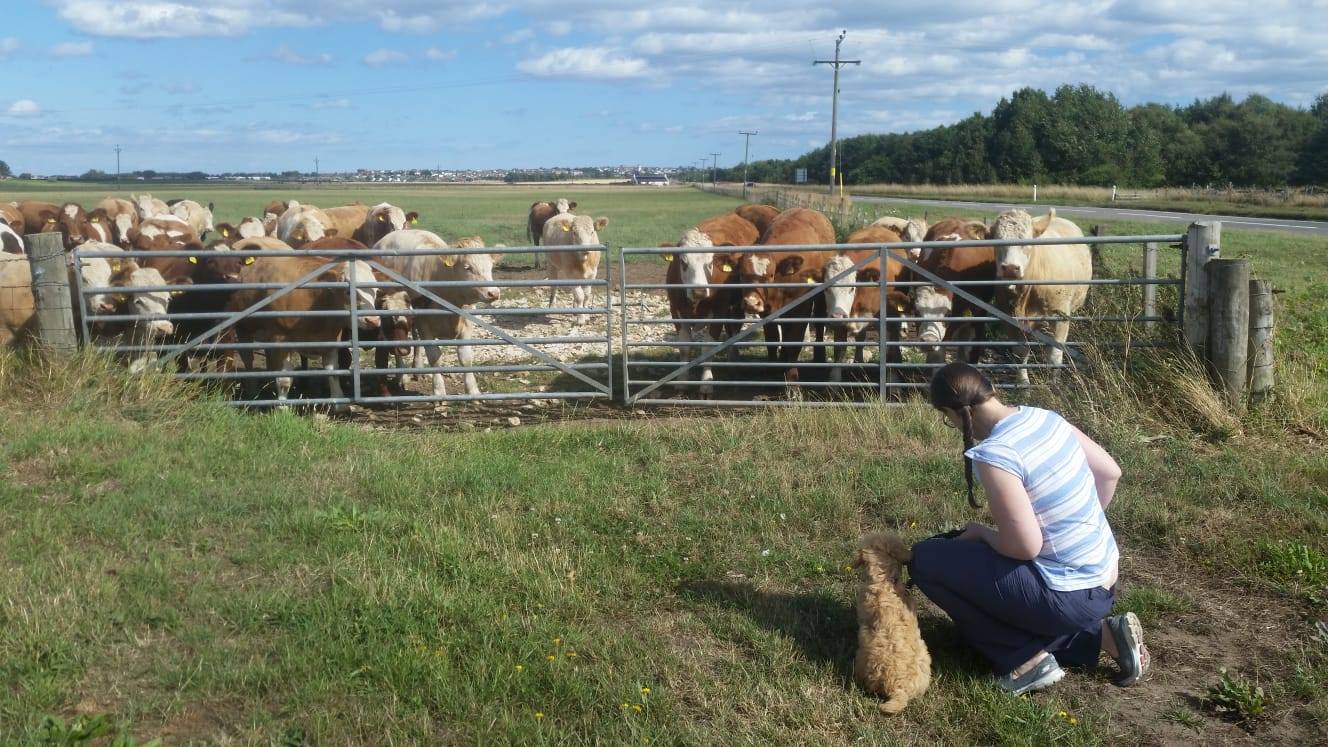
This is not unlimited puppy play to “socialise” puppies. Puppy classes will help you with the socialisation process, but they are not just about dog on dog interactions. Socialisation is a process of early habituation and desensitisation. Puppies must be exposed to various stimuli such as other people, other dogs, other animals, traffic, noises and smells to teach them to ignore these stimuli in the everyday life instead of reacting to them with fear or overexcitement. This exposure must be a positive or neutral experience for a puppy and cannot create any negative emotions. Socialisation starts at 3 weeks of a puppy’s life and lasts up to 12 weeks of age for an average dog. Between 12 and 16 weeks the socialisation window closes and this process slows down dramatically.
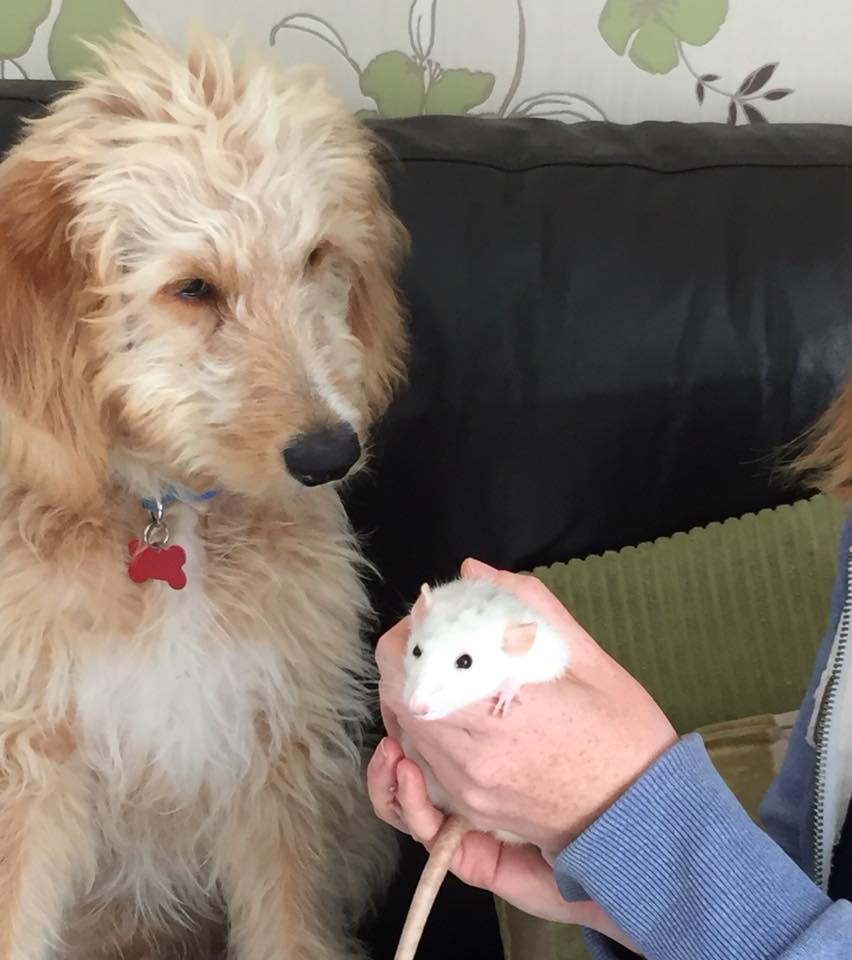

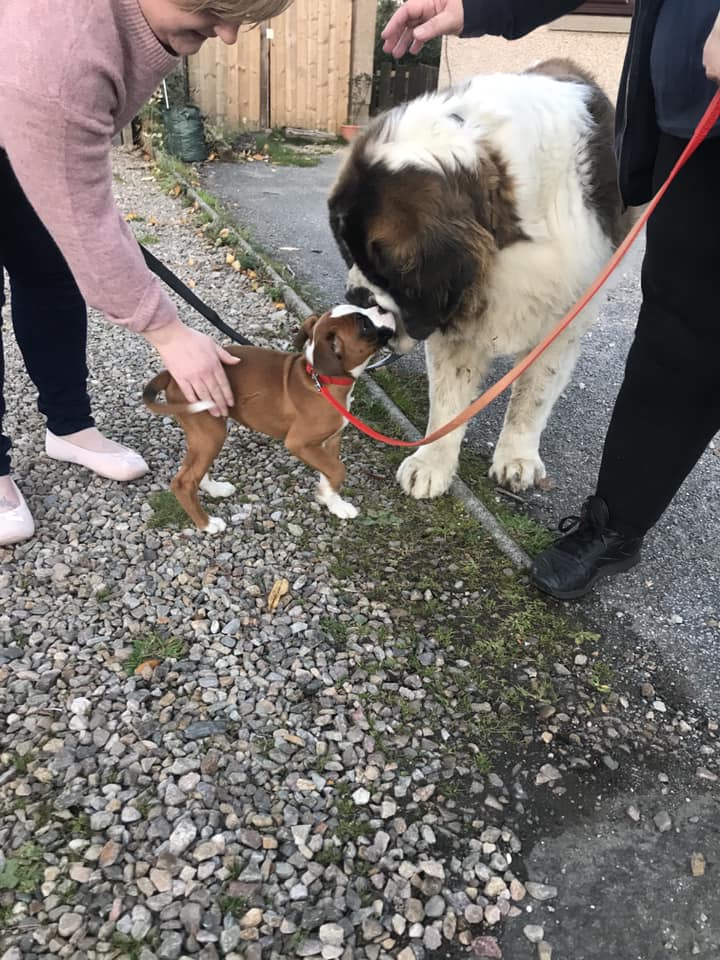
What is the best age to join?
The sooner the better as long it is safe! Puppies usually leave their litter at the age of 8 weeks and should have had its first vaccination prior to you picking it up. After 7 days of confining to your home with no symptoms of illness, your puppy can join our puppy classes (first vaccination required). The sooner they start the easier it is for them as puppies perform natural avoidance behaviour as they get older. It is also important for brain development. The majority of brain connections are made during the first 16 weeks of a puppy’s life. It means that a puppy who was exposed to various stimuli has got a much more developed brain than a puppy who grew up in a poor environment."The effects of early socialization, it's dramatic, it actually changes the brain architecture. If the dog is around a lot of people and other dogs, then the structure of the brain is changing, the thickness of the cortex increases, and the number of connections increases. - Without that, no, they decrease. And the effects are permanent!" - Dr Ian Dunbar
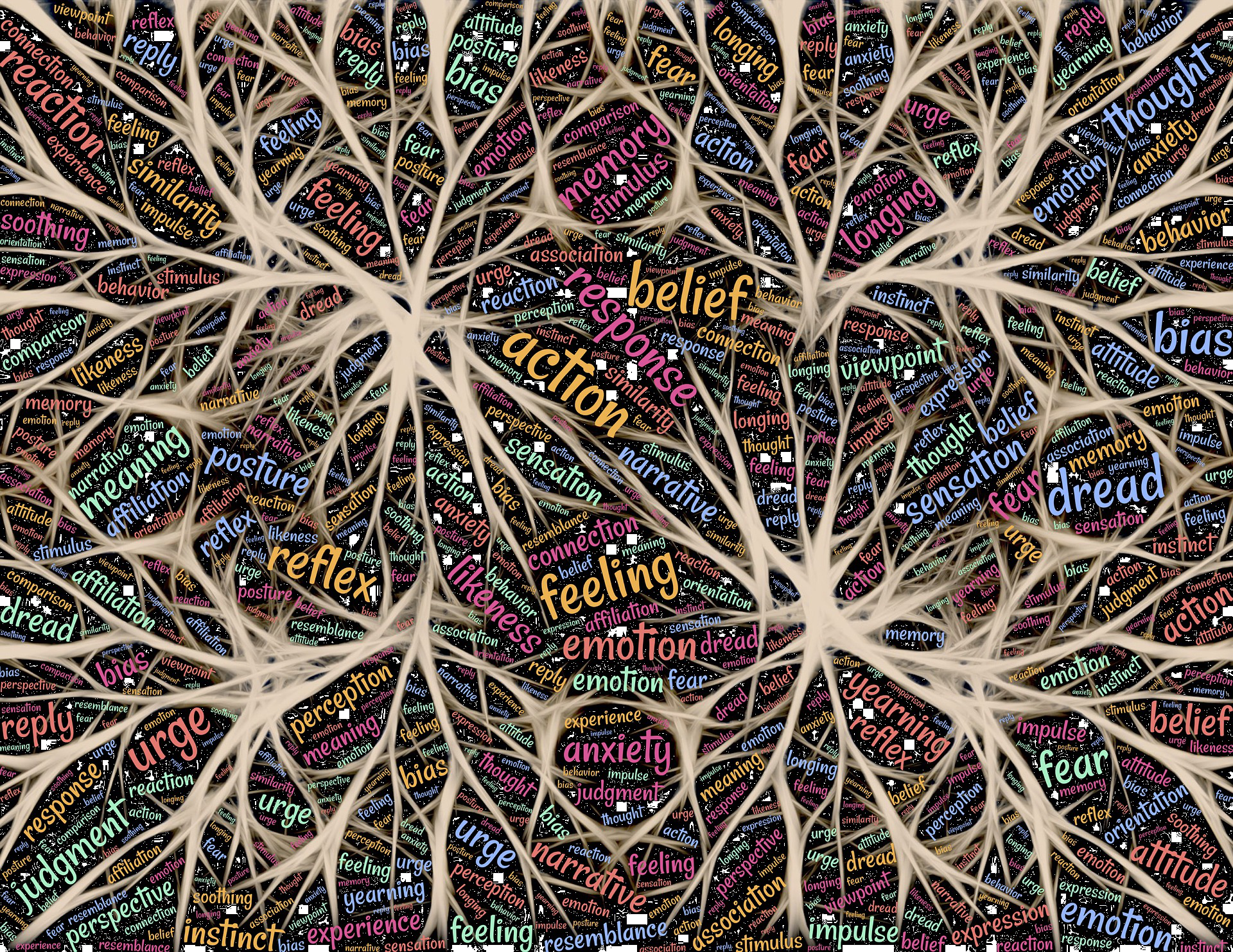
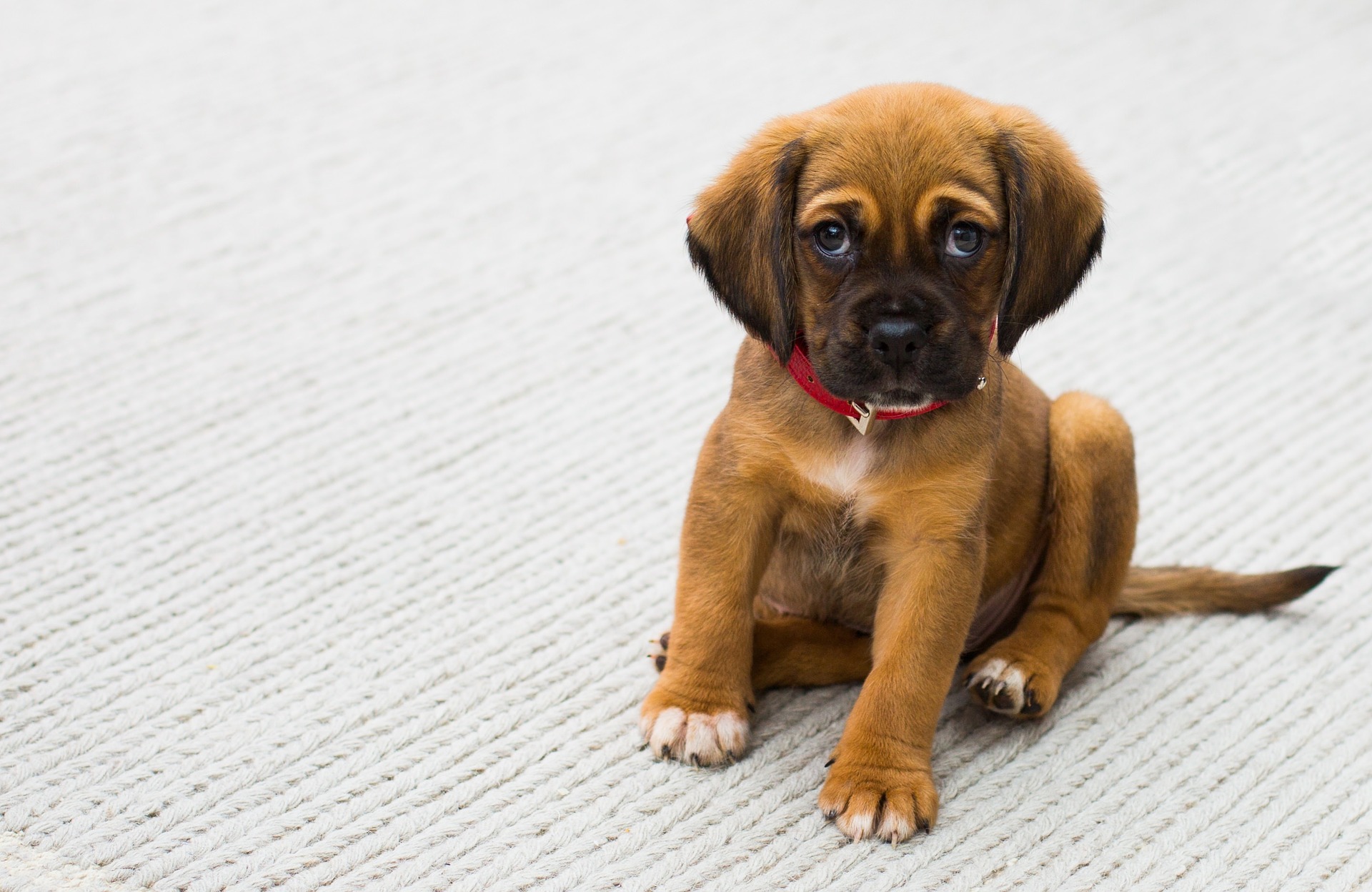
According to The World Small Animal Veterinary Association (WSAVA) puppies should be vaccinated for the first time at 6-8 weeks of age, then every 2-4 weeks until 16 weeks of age or older. At the time when the vaccination schedule ends the socialisation window closes, for many individuals, this happens even earlier. Dogs In Trainers complies with strict recommendations laid down by veterinarians stating that puppies in quarantine should not have contact with unfamiliar dogs and should not walk where other unfamiliar dogs may have been. The space for puppies is prepared with high standards and cleaned with a professional disinfectant before classes start. There is a disinfecting mat provided at the entrance and no unfamiliar dogs are allowed in the hall during puppy classes. These rules apply as long as there are puppies in quarantine in a class. The owners must provide with their puppy’s vaccination records - the initial set of vaccinations is required. We support the statement that socialisation and vaccinations can go together but if you are worried about your puppy’s safety, please discuss this matter with your veterinarian.
“The primary and most important time for puppy socialization is the first three months of life…
For this reason, the AVSAB believes that it should be the standard of care for puppies to receive such socialization before they are fully vaccinated… While puppies’ immune systems are still developing during these early months… appropriate care makes the risk of infection relatively small compared to the chance of death from a behavior problem.” - The American Veterinary Society of Animal Behaviour (AVSAB)
Puppy classes are TEMPORARILY NOT AVAILABLE
“The primary and most important time for puppy socialization is the first three months of life…
For this reason, the AVSAB believes that it should be the standard of care for puppies to receive such socialization before they are fully vaccinated… While puppies’ immune systems are still developing during these early months… appropriate care makes the risk of infection relatively small compared to the chance of death from a behavior problem.” - The American Veterinary Society of Animal Behaviour (AVSAB)
Puppy classes are TEMPORARILY NOT AVAILABLE
